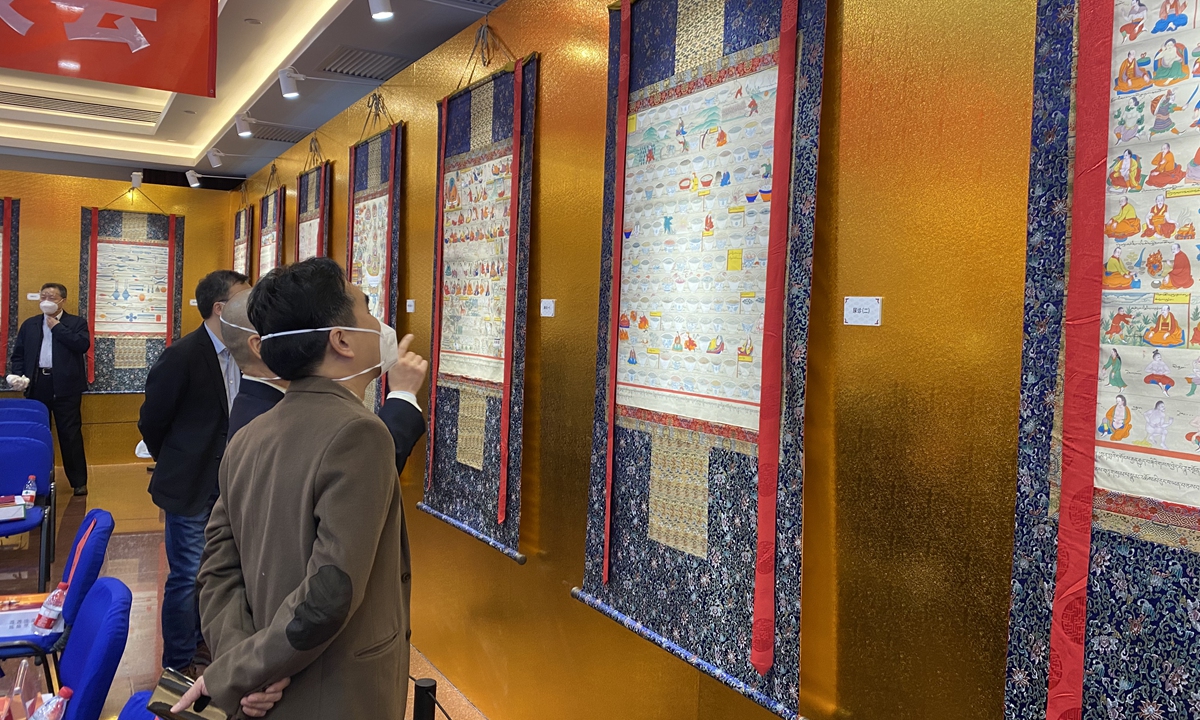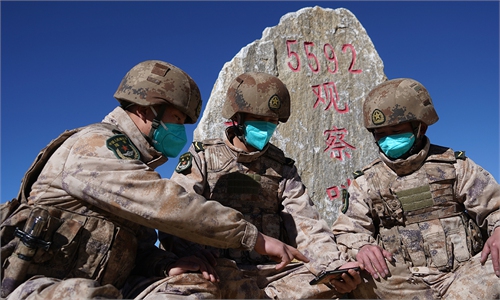Traditional Tibetan medicine treasured and practiced in Beijing for 3 decades thanks to favorable policies, efforts by institutes

Spectators watch Thangka (Tibetan Buddhist paintings on cotton or silk) showing Tibetan medicine prescription and treatment at the Beijing Hospital of Tibetan Medicine in Beijing on October 30, 2022. Photo: Shan Jie/GT
For three decades, Tibetan medicine has become increasingly popular in Beijing, bringing benefits to the capital city's residents, thanks to favorable government policies and great institutional efforts.
The Beijing Hospital of Tibetan Medicine, located in downtown area, celebrated the 30 anniversary of its founding on Sunday. At present, the Tibetan medicine has been widely accepted by many people in China, becoming an important part of Xizang's contributions to the nation.
"As an important part of traditional Chinese medicine (TCM) and an important representative of ethnic medicine, Tibetan medicine has made great contributions to the exchanges between and integration of various ethnic groups," Luobu Zhaxi, vice director of the Tibetan Medical Center of China Tibetology Research Center in Beijing, told the Global Times.
Tibetan medicine originated in Southwest China's Xizang Autonomous Region. It is a healthcare practice employed by people living on the Qinghai-Xizang Plateau, which has been continuously explored and expanded upon in history, as well as being a precious part of TCM.
Since 1949, especially since the reform and opening-up, Tibetan medicine has made great progress in clinical outreach, teaching programs, scientific research, pharmaceutical developments, and other fields. The region has actively carried out research on Tibetan medicine, which has been scientifically and effectively adopted and protected, according to Zhaxi.
To better adopt and promote Tibetan medicine, China facilitated the construction of the Tibetan Medical Center and the Beijing Hospital of Tibetan Medicine in the capital city.
Built in 1992, the Beijing Hospital of Tibetan Medicine is the only national-level ethnic hospital in Beijing. It has three departments - the Tibetan medical cardiovascular department, Tibetan medical gastroenterological department, and Lum medicinal bathing department, with more than 20 doctors from Tibetan ethnic group.
One could easily find many Tibetan elements at the Beijing Hospital of Tibetan Medicine - burning Tibetan incense, colorful roof decorations and a Tibetan medicine pharmacy alongside traditional medicine and Western medicine pharmacies.
The hospital offers Tibetan medicines to people of different ethnic groups.
The Beijing Hospital of Tibetan Medicine has also been serving as a window through which Tibetan medicine is promoted around the world.
Doctor Qiejiajun from the hospital told the Global Times that just like Tibetan Buddhist culture, the Tibetan medicine was first disseminated from the Tibetan region to the Mongolian region, then to nearby countries such as Russia and Kazakhstan, where the system is gaining increasing popularity.




